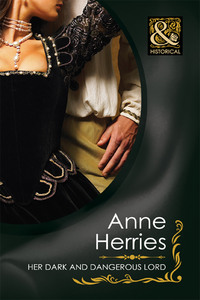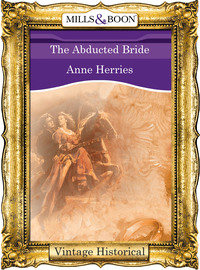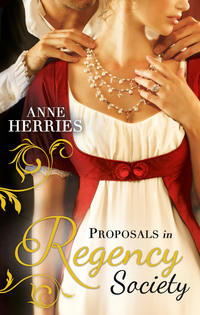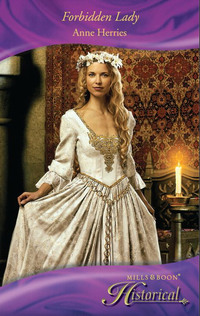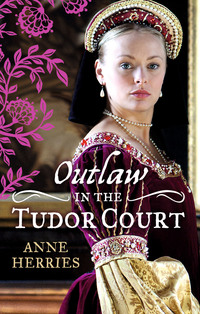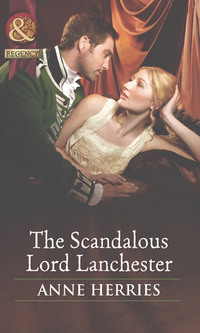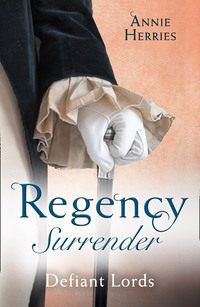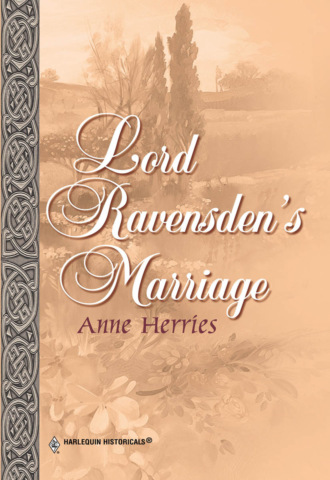
Полная версия
Lord Ravensden's Marriage

“Forgive me,” he said, his breath ragged with desire. “I had no right to do that, no right at all.”
“No,” Beatrice said quietly. “Nor I to let you. We both know that your duty lies with Olivia, my lord. You are fond of her, and she would make you a fitting wife. Your position demands that, and I have never mixed in society. I am a plain, simple countrywoman, with none of the social arts….”
“As if that mattered…you cannot think it, Beatrice?”
“I do not know what to think,” she said. “Please, my lord, let me go now. I must return to my sister. To stay longer might prove dangerous for both of us.”
Lord Ravensden’s Marriage
Anne Herries

www.millsandboon.co.uk
MILLS & BOON
Before you start reading, why not sign up?
Thank you for downloading this Mills & Boon book. If you want to hear about exclusive discounts, special offers and competitions, sign up to our email newsletter today!
SIGN ME UP!
Or simply visit
signup.millsandboon.co.uk
Mills & Boon emails are completely free to receive and you can unsubscribe at any time via the link in any email we send you.
ANNE HERRIES
lives in Cambridge but spends part of the winter in Spain, where she and her husband stay in a pretty resort nestled amid the hills that run from Malaga to Gibraltar. Gazing over a sparkling blue ocean, watching the sunbeams dance like silver confetti on the restless waves, Anne loves to dream up her stories of laughter, tears and romantic lovers.
THE STEEPWOOD SCANDAL:
Lord Ravensden’s Marriage, by Anne Herries
An Innocent Miss, by Elizabeth Bailey
The Reluctant Bride, by Meg Alexander
A Companion of Quality, by Nicola Cornick
A Most Improper Proposal, by Gail Whitiker
A Noble Man, by Anne Ashley
An Unreasonable Match, by Sylvia Andrew
An Unconventional Duenna, by Paula Marshall
Counterfeit Earl, by Anne Herries
The Captain’s Return, by Elizabeth Bailey
The Guardian’s Dilemma, By Gail Whitiker
Lord Exmouth’s Intentions, by Anne Ashley
Mr. Rushford’s Honour, by Meg Alexander
An Unlikely Suitor, by Nicola Cornick
An Inescapable Match, by Sylvia Andrew
The Missing Marchioness, by Paula Marshall
Contents
Chapter One
Chapter Two
Chapter Three
Chapter Four
Chapter Five
Chapter Six
Chapter Seven
Chapter Eight
Chapter Nine
Chapter Ten
Chapter One
October, 1811
“Courage, Beatrice! Are you to be daunted by tales of dragons and witches? No, certainly not,” she answered herself, unconsciously speaking the words aloud. “This is nonsense, sheer nonsense! Papa would be ashamed of you.”
Beatrice shivered, pulling her cloak more tightly about her body as the mischievous wind tried to tug it from her. She was approaching the gates of Steepwood Abbey from the eastern side, having just come from the village of Steep Abbot, which clustered outside the Abbey’s crumbling walls at the point where the river entered its grounds.
In the village behind her lay the peaceful beauty of gracious trees, their bluish-green fronds brushing the edges of an idyllic pool in the river’s course. Ahead of her in the gathering dusk was the great, squat, brooding shape of the ancient Abbey, its grounds almost a wasteland these days. It was not a pleasant place at the best of times, but at dusk it took on a menacing atmosphere that was as much a product of superstitious minds as of fact.
“There is not the least need to be nervous,” she told herself as she peered into the shadowy grounds. “What was it Master Shakespeare said? Ah yes! Our fears do make us traitors. Do not be a traitor to your own convictions, Beatrice. It is all careless talk and superstition…”
But there were so many tales told about this place, and all of them calculated to make the blood run cold.
The land had been granted to the monks in the thirteenth century, and the Abbey had been built in a beautiful wooded area bordering the River Steep. Its origins were mystical, and it was held in popular belief that there had once, long centuries past, been a Roman temple somewhere in the grounds. Some of the stories told about the goings on at the Abbey were enough to make strong men turn pale.
So perhaps it was not just the chill of autumn air that made Beatrice shiver and turn cold as she paused to take her bearings.
“Foolish woman! This is autumn,” Beatrice scolded herself, “and you ought to have remembered the nights were pulling in. You should have left half an hour sooner!”
It was now the fourth week of October, in the year of Our Lord 1811, and the nights had begun to pull in more quickly than she had imagined possible. She ought in all conscience to have set out on her journey home to the small village of Abbot Giles at least half an hour sooner.
Most sensible females who lived in one of the four villages that lay to the north, south, east and west of the Abbey would not have considered crossing the Abbey’s land after dusk, or—since the Marquis of Sywell had taken up residence some eighteen years earlier—during the day for that matter!
Beatrice Roade, however, was made of sterner stuff. At the age of twenty-three she was of course a confirmed spinster, the first flush of her youth behind her (though not forgotten!), all hope of ever marrying denied her. She was tall, well-formed, with an easy way of walking that proclaimed her the healthy, no-nonsense woman she was. Attractive, her features strong, classical, with rather haunting green eyes and hair the colour of burnished chestnuts, she was thought slightly daunting by the local squires, who did not care for her cleverness—or her humour, which was oft-times baffling.
“Miss Roade,” they were wont to say of her as she was seen walking between the four villages, “bookish, you know. And as for looks—not the patch of her sister Miss Olivia. Now she is a beauty!”
And this from men who could hardly have caught more than a fleeting glimpse of Miss Olivia for the past fifteen years! But Miss Olivia took after her mother, and she had been beautiful. Miss Roade was like her father’s family no doubt, and known to be sensible.
So what was the very sensible Beatrice doing poised at the gate to Steepwood’s boundary walls, a gate which lay drunkenly open and rusting, useless these many years? Could she really be contemplating taking a short cut?
If they entered the grounds at all, most local folk stayed well away from the Abbey itself, taking either the path which led past the Little Steep river and the lake, or skirting Giles Wood—though only the braver amongst the villagers went near the woods.
There were odd goings on in the woods! Nan had told her that people were talking about it. Lights had been seen there at night again recently, and the gossips were saying that the Marquis was up to his old tricks—for it was firmly believed that when he had first come to the Abbey, Sywell and his friends had cavorted naked with their whores amongst the trees—and they had worn animal masks on their heads!
“Scandalous! That a nobleman of England should behave in such a manner,” Nan had said only that morning as she polished the sofa table in the parlour until the beautiful wood gleamed so that she could see her reflection. “I dread to think what may be going on there.”
“Nan, you intrigue me,” Beatrice had teased. “Just what dire things do you imagine are happening up there?”
“Nothing that you or I should want to know about,” her aunt had told her with a look of mock severity.
Really, the Marquis’s behaviour was too disgusting to mention—except that life was sometimes a little slow in the villages, and it did make such a delightful tale to whisper of to one’s friends.
Ghislaine and Beatrice had laughed together that very afternoon, though Ghislaine had been inclined to dismiss the rumours.
“The Marquis of Sywell is too old for such games,” she said, her eyes dancing with mischief. “Surely it cannot be true, Beatrice?”
“I would not have thought so—though there must be something going on. The lights have been seen by several villagers.”
“Well, I imagine there will be some simple explanation,” Ghislaine had said, and Beatrice nodded. “I dare say the lights are but lanthorns carried by some person with business on the estate.”
“Yes, I am sure you must be right—but the gossips invent so many stories. It is amusing, is it not?”
Amusing then, but not quite so funny when Beatrice was faced with a walk through the wasteland that was now the Abbey grounds.
Some might whisper of devil-worship and the black arts, but others spoke of pagan rites that were firmly rooted in the history of ancient Britons. It was said that in the old days virgins had been sacrificed on a stone by the lake, and their blood used to bring fertility to the land. Naturally Beatrice was too intelligent to let such tales weigh with her. Really, what did go on in the minds of some people!
Besides, the Abbey had long been the home of an old and respected family—it was only since it had fallen into the hands of the Marquis of Sywell that it had become a place of abomination to the people of the four villages.
Beatrice took heart from the sensible view of her friend. Strange goings on there might be, but they were unlikely to be anything that could bring harm to her.
“It is foolish to be frightened just because it is becoming dark,” Beatrice murmured to herself. “If I but walk quickly I shall be home in less than half an hour.”
Beatrice glanced up at the sky. Storm clouds were gathering. If she took the longer route, she might be caught and drenched by the rain that was certainly coming. She was not to be frightened by rumour and superstition. She would take the shorter route that crossed the Marquis’s grounds close to the Abbey itself. It was a risk, of course, because she would have to pass close to that part of the building which was now used as a private home.
“Nothing ventured, nothing gained.” Beatrice murmured one of her beloved father’s maxims, conveniently forgetting that he had so often been proved wrong in the past. For it was Mr Bertram Roade’s tendency to plunge into the unknown that had led to his losing the small but adequate competence which had been settled on him by his maternal grandfather—Lord Borrowdale. “What can he do to me after all?”
The he she was thinking of was, of course, the wicked Marquis himself, of whom the tales were so many and so lurid that Beatrice found them amusing rather than frightening—at least at home and in daylight.
“Be sensible,” Beatrice told herself fiercely as she began to cross the gravel drive which would take her past the Abbey—and the dark, haunting ruins of the Chapter House, which had been destroyed at the time of the dissolution of the monasteries and never restored. “He couldn’t possibly have done everything they say, otherwise he would have died of the pox or some similar foul disease long ago.” She smiled at the inelegance of her own words. “Oh, Beatrice! What would dear Mrs Guarding say if she knew what you were thinking now?”
It was because she had spent the afternoon at Mrs Guarding’s excellent school for young ladies that she was having to risk venturing right to the heart of the Abbey grounds now.
It had been so pleasant for the time of year earlier that afternoon. Beatrice had visited her friend Mademoiselle Ghislaine de Champlain, who was the French mistress at Mrs Guarding’s school, and had stopped to drink tea with her.
Beatrice had been fortunate enough to spend one precious year as a teacher/pupil at the school, where she had studied with Ghislaine to improve her knowledge and pronunciation of French, in return for helping the younger pupils with their English—the happiest year of her life.
It was, of course, the only way she could afford to attend the exclusive school, her education having been undertaken by her father at home, which might account for some of the very odd things she had been taught.
She had been twenty during that precious year spent at the exclusive establishment. Beatrice had hoped to make a niche for herself at the school, because she very much admired the principles of the moral but advanced-thinking woman who ran it. However, family duties had forced her to return to her home.
Thinking about the illness and subsequent death of her dearest mother occupied Beatrice’s thoughts as she walked, banishing all lingering echoes of orgies and dire goings on at the Abbey. Mrs Roade had been an acknowledged beauty in her day, and, as the only sister of the wealthy Lord Burton, had been expected to marry well. Her decision to accept Bertram Roade had been a disappointment to her family.
Beatrice’s musings were brought to an abrupt end as she heard the scream. It was the most blood-curdling, terrifying sound she had ever heard in her life, and she whirled round, looking for its source.
It had seemed to come from the Abbey itself. Perhaps the chapel or the cloisters…but she could not be certain. It might have come from somewhere in the grounds. Yes, surely it must have been the grounds—an animal caught in a trap perhaps? So thought the sensible Miss Roade.
For an instant, Beatrice considered the possibility of a dreadful crime…possibly murder or rape. Vague memories flitted through her mind; there was a tale of a girl caught inside the grounds one night when the monks still lived there: it was said that the girl had been found dead in the morning!
Beatrice shivered and increased her pace, her nerves tingling. All the stories of the Marquis’s atrocities came rushing back to fill her mind with vague fears of herself being attacked by…what?
Long dead monks? Ridiculous! What then? Hardly the Marquis? Surely she was not truly afraid of him? He was after all married at last, to a rather beautiful, young—and if the little anyone knew of her was anything to go by, mysterious girl. All Beatrice knew of her was that her name was Louise, and that she had been adopted as a baby by the Marquis’s bailiff, John Hanslope. It was whispered that she was his bastard, but no one knew the truth of the affair.
The scandal of the nobleman’s marriage to his own bailiff’s ward had both shocked and delighted the people of the four villages. Despite his terrible reputation, it was still unthinkable that a man of his background should marry a girl who was after all little more than a servant. “Quite beyond the pale, my dear!”
Beatrice’s own sympathies lay with the unfortunate girl who had married him, for surely she must have been desperate to do such a thing?
A sudden thought struck Beatrice—could it have been the Marquis’s wife who had screamed? She glanced at the brooding, menacing shape of the Abbey and crossed herself superstitiously. What could he have been doing to her to make her scream like that?
“No, no,” she whispered. “It could not have been her—nor any woman. It was an animal, only an animal.”
He was said to be in love…after years of wickedness and debauchery!
Even a man of the Marquis’s calibre could not be capable of hurting the woman he loved—or could he?
Beatrice tucked her head down against the wind and began to run. Perhaps it was her anxiety to leave the grounds of the Abbey that made her careless? It was certain that she did not see or hear the pounding hooves of the great horse until it came rushing at her out of the darkness. She was directly in its path and had to throw herself aside to avoid being knocked over.
Her action led to her stumbling and, having the breath knocked from her body by the force of her fall, she could only continue to lie where she was as the rider galloped by, seemingly unaware or uncaring of the fact that he had almost ridden her down.
Beatrice caught only a glimpse of him as he passed, but she knew it was the wicked Marquis himself, riding as if the devil were after him. He was a big man, wrapped about by a black cloak, his iron-grey hair straggling and unkempt about his shoulders. An ugly creature by all accounts, his features thickened and coarsened by his excesses—though she herself had never caught more than a fleeting glimpse of him. He was a bruising rider, and she had sometimes seen him in the distance on her walks—but they were not acquainted. The Roade family did not move in his circles, nor he in theirs.
“That was not well done of you, sir,” Beatrice murmured as he and his horse disappeared into the darkness.
She rose to her feet a little unsteadily, her usual composure seriously disturbed by what had happened that night. It was certain that the Marquis was in a black mood, perhaps drunk, as the gossips said he often was. Beatrice shuddered as she thought of the young woman who had married him the previous year. How terrible to be trapped in marriage with such a monster!
What could have possessed her to do such a thing?
Beatrice had never met the young Marchioness, or even seen her out walking. As far as Beatrice knew, no one had seen much of her since the wedding. People said she hardly left the Abbey—some said she was too ashamed, some murmured of her being kept a prisoner by her wicked husband, others that she was ill…and there was little to wonder at in that, married to such a brute!
She could only have married him for his money. Everyone said it, and Beatrice was sure it must be the truth—but had the Marquis been the richest man in England, she would not have married such a monster!
Beatrice had stopped shaking. She resumed her walk at a more sensible pace, keeping her head up so that she was aware of what was in front of her. There was little to be heard but the howl of the wind, which was eerie and unpleasant.
She would be glad to be home!
“You’re soaked to the skin, my love,” Nan said, fussing over her the moment she entered her father’s house. “We have been on the look for you this past hour or more. Whatever do you mean by worrying your poor father so?”
They progressed to the parlour, Beatrice having left her sodden cloak in the hall. She moved closer to the fire, holding her hands to the flames until she had stopped shivering, then went over to the large oak and upholstered Knole settee, carefully moving her aunt’s embroidery before sitting down.
“Have I worried Papa?” Beatrice thought it improbable. Her father would most likely be in his study, working on one of his inventions—the marvellous, wholly useless objects he was forever wasting his time on, which he believed were going to restore his fortune one day. “I think you were worried, Nan. Poor, dear Papa can hardly have noticed. Now, if I were not here for dinner—then he might begin to worry. Especially if it meant waiting for his meal.”
“Beatrice!” Nan scolded. “Now that is unkind in you. I know your humour, my dear—but it sounds harsh in a young woman to be so cynical. It is little wonder that…” She broke off, biting her lip as she saw the look in her darling’s eyes.
“Yes, I know I have driven them all away—all my suitors,” Beatrice said ruefully. “I really should have taken Squire Rush, shouldn’t I? He has three thousand a year, I dare say…but he has buried three wives and that brood of his was really too much!”
“There were others,” her aunt said. Mrs Nancy Willow was a widow in her early forties: a plump, comfortable, loving woman, who was extremely fond of her eldest niece. She had come to her brother’s house only after her husband (a soldier turned adventurer) had died of a fever. She sometimes thought it would have been better if she had been there before her lovely but slightly bird-brained sister-in-law had died, but she and Eddie had been in India at the time. “I understand there was a suitable admirer once…”
“And who told you that, aunt?”
Nan frowned. Beatrice rarely called her “aunt’ in just that way: she was clearly touching on a sore place.
“Well, well, it doesn’t matter,” she said. “But should another suitable young man come along…”
“I could not leave Papa,” Beatrice said at once. “Besides, it will not happen. I am nearly at my last prayers.”
“Now that you are not!” Nan said. “You have many qualities, Beatrice. A discerning man would know that the minute he laid eyes on you…”
“…and fall instantly in love with me?” Beatrice said, amused by her aunt’s romantic notions. “Only find me this suitor, Nan dearest—and, if he is not too dim-witted, which I think he may have to be, I will engage to do my best to snare him.”
“You and your wicked, wicked tongue,” her aunt said, smiling even as she shook her head. “And as for not being able to leave your papa—you know that is not so. You were obliged to give up all thoughts of marriage when your mama fell ill. To have left your father then would have been careless in you—but my brother has been kind enough to offer me a home for the rest of my life…”
“Unless you receive an offer of marriage, Nan!”
Her aunt pulled a wry face. “I could not be tempted. I am comfortable here, and here I shall stay. Since it does not take two of us to run this house, you are free to do as you wish…”
“Yes, I see that it makes a difference…” Beatrice looked serious. “It might be better if I started to look for a position…Papa’s funds are limited, and since…”
“He would never hear of it, and nor should I,” declared Nan roundly. “If anyone should look elsewhere, it must be me.”
“No!” Beatrice spoke quickly. She had been afraid her aunt would take that attitude, which was why she had not spoken her thoughts aloud before this. “You do not understand, Nan. I am not speaking of hiring myself out as a governess or a companion…I would only leave here if I could go back to Mrs Guarding’s school as a teacher.”
Her aunt stared at her, eyes narrowing. “Is that why you have been so long this afternoon?”
“No, indeed, for I have not yet spoken to Mrs Guarding about my idea. I went to see Ghislaine de Champlain, who, as I told you, is the French mistress there. We spent some time talking, and then had tea together in her room, which overlooks the river. It really was most pleasant.”
“You speak of Mademoiselle Champlain often—and of the time you spent at the school,” Nan said. “Would it really make you happy to return there, dearest?”
“Yes, I think so,” Beatrice replied, smothering a sigh. It wasn’t that she was unhappy with her life in her father’s house, but she sometimes longed for some stimulating company—a friend she could sharpen her wits on now and then without feeling that she was either hurting or bewildering that friend.
She briefly remembered her long-dashed hopes, which had been destroyed when she was a girl of nineteen—just the same age as her sister was now!—but their situations had been very different. Olivia was in London enjoying a brilliant season, and engaged to one of the best “catches’ of the Season. For Beatrice there had been no Season, and only one suitor she might have taken—if he had asked. However, after toying with her hopes and affections for a whole month one summer, he had taken himself back off to London and proposed to an heiress!
“Pray do not look so sad, my love,” Nan said. “Come, sit by the fire and let me dry your poor feet. You look as if you have had a tumble in the mud!”
“As a matter of fact, I have,” Beatrice said, forgetting her disappointments as she recalled what had happened to her that evening. “I walked home through the Abbey grounds, Nan.”


